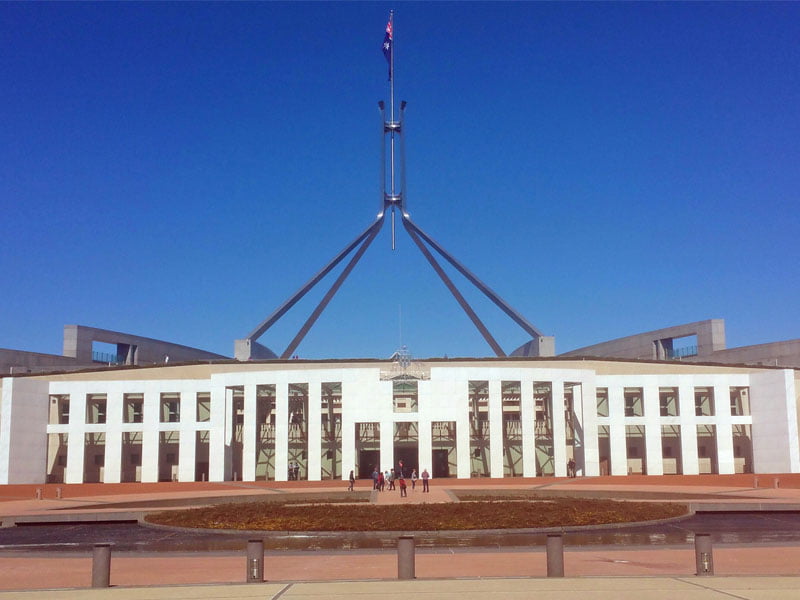Equity crowdfunding will soon be available to all Australian companies following sustained pressure from the Opposition and startup community.
The government revealed the move to extend the funding scheme to include privately-held companies in the federal budget on Tuesday, and released draft legislation on the same day.
It comes just months after its first equity crowdfunding bill, which restricted the funding route to just unlisted public companies, was controversially passed by Parliament.

But the extension to the crowdsourced equity funding model will come at a cost to the budget of $4.5 million over four years, with the government providing this money to ASIC to “implement and monitor” the extension.
Equity crowdfunding has been highly contentious over the last two years, and the bill passed earlier this year restricted the funding model to unlisted public companies. This led the Opposition and members of the tech community to claim that 99 per cent of Australian businesses would then be locked out of this option.
The bill was dubbed a “dodo” by Shadow Minister for the Digital Economy Ed Husic after the government admitted it would have to amend the bill before it had even passed.
It was begrudgingly passed by the Opposition, but Labor maintained that the government should have waited and included the proprietary measure at the same time.
Now the government has confirmed that equity crowdfunding will soon be available to all Australian companies, although no date has been set for when this will be introduced.
“This will open up new funding for business ideas that may struggle to attract funding from traditional sources. Shareholders will be protected by the higher governance and reporting obligations that CSEF proprietary companies will need to meet,” the government said.
The funding for ASIC will be partially offset by an increase of $3.4 million over three years in the charges recovered by ASIC.
The budget also saw the government finally put a date on when it will stop the double taxation of digital currencies like bitcoin, with the changes to come into effect from July.
The move was first announced in 2015’s Innovation Statement, but it has taken the government more than a year and a half to legislate it, much to the anger of the local FinTech community.
Under current GST laws, digital currencies are treated as intangible property, meaning they have GST applied to it twice, at both ends of the transaction. The reform will see bitcoin and the like treated the same way as money in terms of GST.
According to the budget, this double taxation will be stopped from July this year.
“Removing double taxation on digital currencies will remove an obstacle for the financial technology sector to grow in Australia,” the budget said.
The government has also “refocused” its incubator support program, changing its focus to target regional startups and tech firms.
The measure, which is part of the Entrepreneurs’ Program, will now provide support to existing regional incubators and grants for the establishment of new ones.
In the speech introducing the budget, Mr Morrison placed an especial emphasis on the role of small businesses in the Australian economy.
“Small business owners are out there fighting for growth in their businesses every day. They deserve our respect and support. Small business owners have gone without to keep their businesses open,” Mr Morrison said.
But the budget includes only two new measures to support Australian small businesses and startups.
The asset deductibility threshold for small businesses has been extended for another year, allowing businesses with annual turnover of less than $10 million to immediately deduct purchases of eligible assets costing less than $20,000.
The write-off scheme has now been extended, and will come to an end on 30 June, 2018.
Small Business Minister Michael McCormack said this move will improve cash flow for Australian small businesses.
“I have heard firsthand how helpful the instant asset write-off is for many small businesses to invest in the capital equipment they need to grow and – importantly – create more jobs. I have heard how it helps small businesses invest in their business and replace or upgrade their assets,” Mr McCormack said.
The other measure relevant to small businesses is the $300 million in incentives the government is putting on offer for state and territory governments to cut red tape. The funding will be provided to governments that reduce regulatory burdens and remove unnecessary restrictions on competition, and comes from the National Partnership on Regulatory Reform.
“No matter where I have travelled or whom I have met, red tape is top of mind for small business. This $300 million incentive over two years will help us work with the states and territories to make the business of doing business even simpler,” Mr McCormack said.
Do you know more? Contact James Riley via Email.

